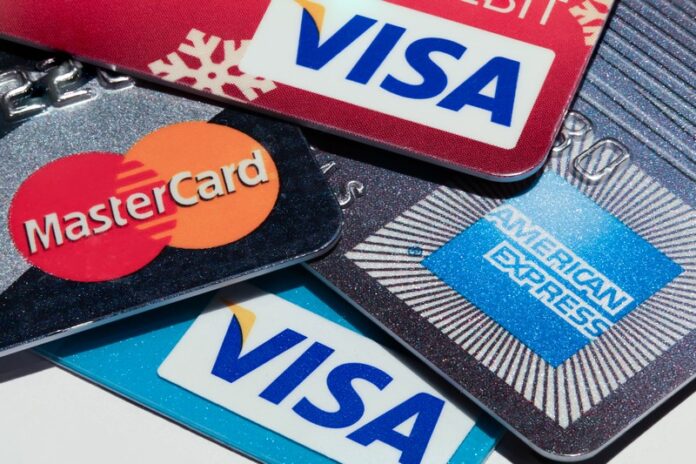Sri Lankans, whose real incomes are getting hammered on a daily basis from soaring inflation, have turned to getting credit cards from Banks even its interest rates have jumped to 40 percent .
As the Monetary Board accelerated the pace of policy rate hikes since January onwards, the Central Bank in March raised the hitherto prevalent ceiling rate on credit cards from 18 percent to 20 percent only to fully remove any administrative rate caps on the collateral-free pre-approved loan facilities on April 10.
People, whose real incomes got hammered specially after the country was driven into hyper inflation from March onwards, turned increasingly towards their credit cards, but the soaring rates are making that option even harder and more expensive for the users.
Higher rates put a damper on new credit and the credit-led demand for consumption thereby helping to cool down the demand side inflation.
The total number of credit cards has been increased to 1976179 cards in May 2022 from 1973481 in April this year, Central Bank data shows.
This was a significant jump in the number of credit cards even when the financial and economic misery became more pronounced, economic experts claimed.
According to the Central Bank data, the outstanding credit card balance has come down to Rs.136.02 billion in May 2022 from Rs138.19 billion in April indicating the new credit card holders prompt repayment of their dues amids present economic and social crisis.
Although there was a sudden drop seen in the card balances, the steep increase in the interest rates on credit cards could make conditions worse for the cardholders, prompting them to think twice before swiping their cards, several Bank CEO’s opined.
After the Central Bank eliminated the maximum interest rate ceilings on credit cards in the third week of April to reflect the fast-rising interest rates in the economy, the banks soon raised their interest rates up to 30 percent and later to 40 on the cards’ outstanding balance, which came into effect from their next credit cycle.
Meanwhile, the banks are also tightening their credit standards and are declining requests for balance enhancements and requests for new cards, irrespective of the applicants’ credit standing.
Some banks do not even provide reasons for the rejection of the request, a very bad practice by them.
However, the banks also face heightened credit risks from their card customers, as they confront wilful defaulters after using the entirety of the balance in the card. Credit card is a clean facility marked by a bank to its clients and no security is typically involved.
In an economic downturn in the likes of what Sri Lanka is facing today, credit cards are the last to be settled after all other loans by the borrowers. Hence, the banks face a higher risk of non-performing loans from credit cards.
Meanwhile, there has also been a significant increase in the number of new cards approved in May numbering 2698.
